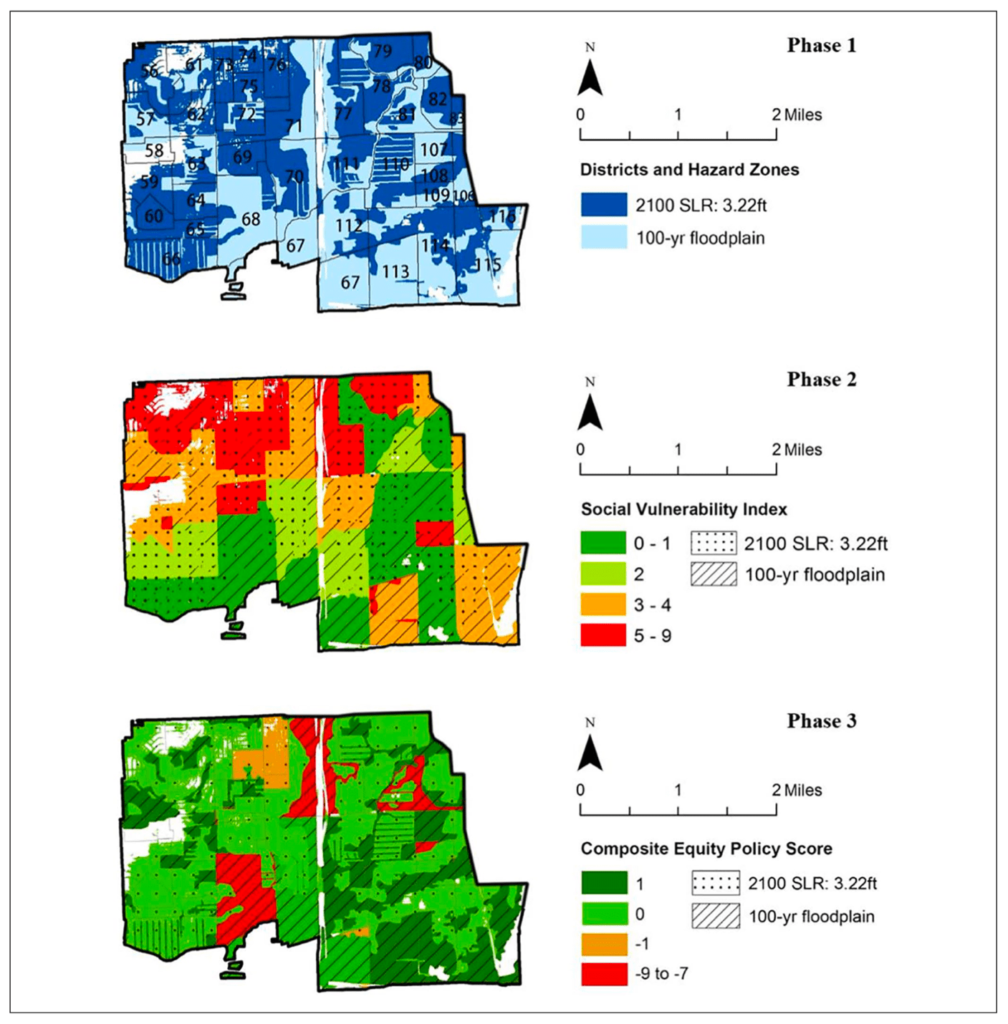Urban plans often ignore the uneven impacts of hazards on socially vulnerable populations. We evaluate the degree to which equity policies in local networks of plans support risk reduction for socially vulnerable populations, and examine the relationship between equity policies scores and the level of social vulnerability in six cities exposed to floods and projected sea level rise. We find high variability in equity policy support for risk reduction, and that equity policies in plans actually actively increase risk of loss in neighborhoods with high levels of social vulnerability, which in turn could disrupt further development.

FROM P.4

